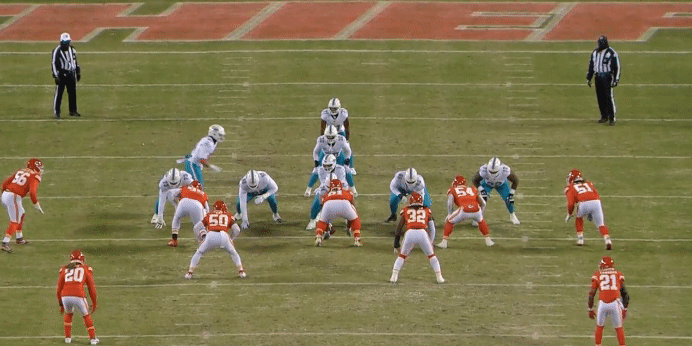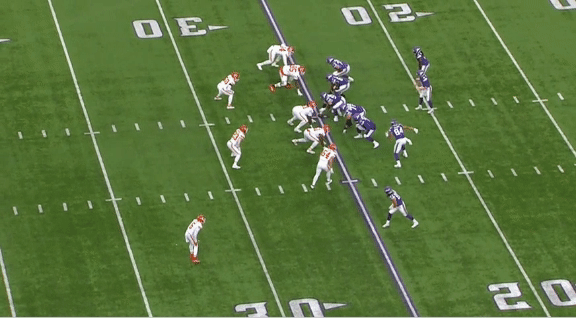Measurable value: Did the Chiefs defense suffer without Nick Bolton?
Examining how the defense performed with and without Bolton in 2023 to try and figure out the LB's value/contract.
Let me start off by saying that regardless of a long-running bit on “Only Weird Games,” I’m a fan of what Nick Bolton brings to the Chiefs defense.
I hear Steve Spagnuolo’s glowing words about the veteran LB (veteran? How fast has time gone?) and how he has ultimate trust in Bolton. I see him assisting in getting guys lined up and calling out changes prior to the snap. And yes, I’ve seen Bolton make big plays in big moments and appreciate his value there. I even wrote about him following the Chiefs’ dominant win over the Dolphins in the playoffs last year, in which Bolton played the best game of his career.
I say all this to note that I’m aware Bolton does bring some value to the Chiefs defense, and I’ve written about that value on more than one occasion.
That said, Bolton is one of the more controversial players on the Chiefs, and there’s a reason for this. Some fans view him as an elite cornerstone of the defense. Others view him as a good but not great ‘backer. Still others view him as average at best, and some view him as significantly worse. And because of that, it’s difficult to have a rational discussion on Bolton’s contributions on defense without getting lumped into a “camp” and getting involved in bad faith discourse.
This is only getting more noticeable with Bolton entering a contract season in 2024. A running joke on “Only Weird Games” is that the Chiefs will not only back up a money truck for Bolton, but will give him the truck as well and probably your firstborn child. This is based on Spags love of smart players, and smart linebackers in particular (never forget that before Bolton, Spags raved about Anthony Hitchens and called him the glue of the defense) as much as it is Bolton’s play on the field. Some fans and media believe a big contract is warranted for Bolton, others believe that it’s not.
I’ve tended to fall into the latter category, believing that while Bolton’s contributions are important they are not the sort that can’t be replaced with a decent veteran. And his limitations in space have always caused me to question whether he can avoid being picked on by teams that look to isolate him, or being exposed in situations where he’s just not fast enough to close out the boundary.
Without getting too deep into the weeds, plays like this aren’t terribly rare for Bolton (recall when he couldn’t run down Brock Purdy in space in the Super Bowl). But of course, neither are stuffs at the line of scrimmage or strong tackles made to stop plays in their tracks. The short story is that Bolton’s film is something of a mixed bag, with definite strengths (run fits, strong tackling, good downhill diagnosis and closing) and definite weaknesses (moving in space, closing speed, and coverage duties if they’re too rangy).
Most conversations about paying Bolton don’t revolve around his film, though. Instead, when people discuss Bolton’s contributions to the team they often make statements about him that are impossible to really examine on their merit. More amorphous concepts like being the quarterback of the defense, getting everyone lined up, trust from the coach and other intangibles are frequently brought up. Statements like “always around the ball” and a knack for the big play are similarly tough concepts to really quantify.
So how do we judge Bolton’s value if it’s not purely off his film (where one can break down a decent player with some very specific strengths and very specific weaknesses)? If the answer to any weaknesses he shows on film is that he contributes so much more than we can see/quantify (and I’m not saying that’s out of the question), what are we to do to try and find out the truth of that claim and pin down Bolton’s value?
Well, fortunately for purpose of analysis, there’s a sample size of the Chiefs defense with and without Bolton last season. So what makes the most sense, if we’re not going to utilize Bolton’s film to sum up the entirety of what he brings to the table, is to see whether the defense fell off at a rate commensurate with what one would expect when a crucial player is lost. In other words, if a player is truly an impact player you would expect to see some evidence for it when he’s not on the field over a long period of time.
And so I set out to find out how the Chiefs were impacted by Bolton’s offense. How can one determine that impact? Inherent in that question, as well as the one of “value” (which in turn relates to contract), is to think of it in terms of replaceability. How well can the team replicate production in the event they lose a player? In this case, we happen to have an edge in determining Bolton’s value/replaceability due to the presence of Drew Tranquill, who signed with the Chiefs prior to the 2023 season.
Tranquill is known to be a competent but not elite LB, as evidenced by the small contract Brett Veach gave him last season and the modest (though significantly higher) 3 year, $19 million (with $12 million guaranteed) extension the Chiefs signed him to this offseason. It’s a nice but not huge payday for a player who did a lot of things well for the Chiefs in 2023. And the reason this is valuable information is that Tranquill was the player who handled Bolton’s role last season when the latter was injured (with the exception of the Green Bay game, as Tranquill was hurt very early).
And so what made the most sense was to see how the defense performed as a whole during the regular season when Bolton was replaced by Tranquill compared to how it performed when Bolton was healthy. By doing so, we can at least somewhat answer the question as to how badly the defense missed Bolton when his spot was being filled by a good (but not great) linebacker who cost a relatively modest sum to keep in town.
Why stick with the regular season? Well, in large part because of who Spags is. The Chiefs’ defensive coordinator is well-known for mixing things up a great deal more than normal in the postseason, with some of the best team-specific gameplans I’ve ever seen. And so comparing those defensive performances to an ordinary regular season defensive performance seemed less than ideal in terms of a “like for like” comparison.
The good news? We have a pretty large sample size to work with of 7 games with Bolton playing (DET, JAX, DEN1, LAC1, NE, LV2, CIN), 7 games where Tranquill replaced Bolton (CHI, NYJ, MIN, DEN2, MIA, PHI, LV1), 1 game where neither really played (GB), and 1 game where Bolton played but not Tranquill (BUF). You can easily spot the games Bolton missed in Tranquill’s 2023 snap count, as any game Bolton missed Tranquill became the LB on the field virtually every snap.
So, how to figure out whether Bolton’s absence affected the defense in a way that provides actual information?
I looked at the opponents’ offensive EPA (Expected Points Added, which is basically a measure of how well a team moved the ball in a way that made scoring more likely) per play in each game for both the pass in the run. I then compared those numbers to said opponents’ average EPA/play in the pass and run, then came up with an EPA/play over/under performance by the Chiefs defense.
That sounds convoluted, but here’s the question we’re answering… did The Chiefs hold an opponent UNDER their normal EPA/play, allow them to go OVER, or was it about equivalent). I did this for each type of game with Bolton and without Bolton (besides GB, where Tranquill was also hurt and so there was no NFL-caliber replacement taking his spot).
The information we’re looking for is actually kind of simple after we get through all that explanation. Did the defense, when isolating for opponent, get worse while Bolton was out in a way that’s measurable? Again, I did all this having NO idea what the numbers would tell me.






